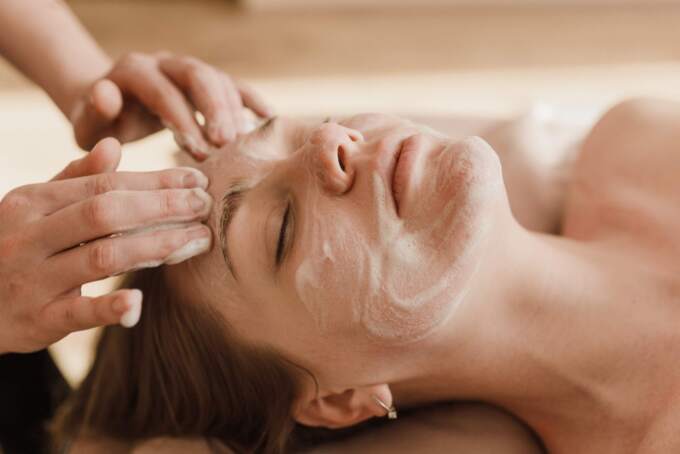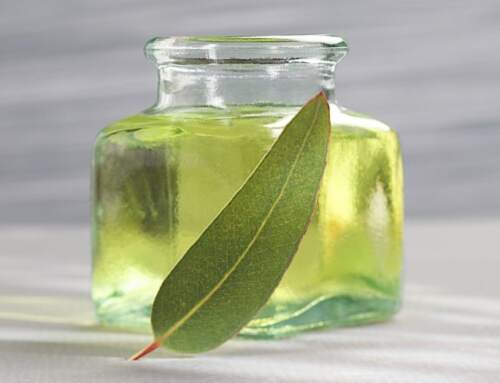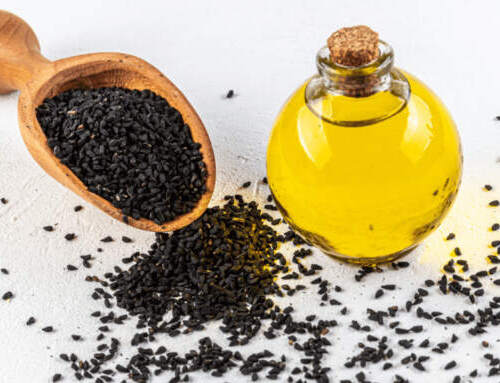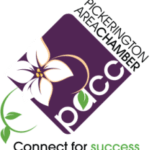You can go weeks without food and days without water. But you won’t last even a few minutes without breathing. Even so, we tend to forget how important air is. Respiratory infections, sinus problems, allergies, pollution, asthma, and even stress and tension can make it hard to breathe easily. If your breathing is anything less than deep and full, try these seven tips to breathe better now. [Tinnitus can be caused by sinus problems]
Healthy tip!
One of the easiest ways to breathe better is to retrain your body to breathe in a way that improves respiratory function.
Clear Sinuses with These 9 Natural Remedies:
1. Hydrate and humidify
Cold air and indoor heating can dry out delicate respiratory tissues, exacerbating respiratory illness and asthma, and increasing the risk of sinus or upper respiratory tract infections. In winter months, or if you live in a dry climate, use a humidifier—the warm, moist air helps clear excess mucus from the lungs and sinuses and lessens irritation of the respiratory tract. Steam vaporizers are inexpensive and easy to maintain, and can be used with essential oils. Just add a few drops of eucalyptus, peppermint, pine, or spruce essential oil to the medicine cup on the mister, and infuse your bedroom or office with healing scents.
To prevent the growth of bacteria and mold, be sure to clean your humidifier properly—use equal parts warm water and vinegar, and scrub off residue with a soft brush—and be careful not to overhumidify, which can lead to mold growth. Stay well-hydrated to keep the respiratory tract moist. If you’re sick of chugging water, try spiking it with juice, lemon or cucumber slices, or electrolyte-enhanced drink tablets or powders.

2. Use a neti pot
Nasal irrigation, a traditional Ayurvedic treatment, has been used for thousands of years to treat congestion and sinus problems by removing mucus and debris from the nasal cavities. You can find a variety of nasal irrigation devices at natural grocers or pharmacies. Try a neti pot, a small ceramic pot specially designed to irrigate sinuses or a squeeze bottle.
Fill either one with 1 pint of lukewarm distilled water mixed with 1 teaspoon of sea salt. Check the health department guidelines in your area; your tap water may contain low levels of bacteria and protozoa that can stay alive in the nasal passages and cause potentially serious infections in some individuals.
During the day, keep nasal cavities clear with sprays designed to moisturize and soothe sinuses. Look for formulas made with xylitol, a sugar alcohol derived from fruits and vegetables that’s been shown to reduce the risk of sinus infections.
3. Take healing herbs
A variety of herbs and supplements can ease congestion, combat allergies, fight respiratory infections, and help you breathe easier. Butterbur, a shrub that grows in Europe and North America, has been used for hundreds of years in traditional medicine to treat cough, asthma, and breathing difficulties, and it’s been shown in studies to ease allergic rhinitis and other respiratory issues.
Look for tinctures and capsules standardized for petasin and isopetasin, and choose a formula certified and labeled “PA-free,” meaning it doesn’t contain liver-harming pyrrolizidine alkaloids (PAs).
Additionally, medicinal mushrooms can help promote healthy respiratory and lung function. And eucalyptus contains myrtol and cineole, compounds that have been shown to treat sinusitis and bronchitis; look for it in combination formulas with other respiratory herbs such as grindelia, dong quai, skullcap, mullein, ginger, peppermint, and wild cherry bark. Or make your own breathe-easy beverage: combine fenugreek, hyssop, juniper, and licorice, and sip as a soothing tea.
4. Exercise
Exercise may not sound appealing when you’re feeling like it’s hard to breathe, but moving your body can improve lung function and capacity, and clear congestion. Start small: take gentle walks or ride your bike. An elliptical trainer or step machine is a great way to exercise inside when cold weather may exacerbate your symptoms.
Work your way up to more vigorous exercises, such as skiing, racquetball, jogging, or dancing. Aerobic exercise increases breathing rate and works the heart and lungs, improving their endurance and helping the body use oxygen more efficiently—which, in time, improves breathing. Running and other aerobic exercises also improve the tone of the diaphragm and intercostal muscles, which improves breathing. If you’re short of breath from a virus, wait until you’re well before exercising.
5. Eat a Mediterranean diet
A Mediterranean diet—rich in fruits, vegetables, legumes, whole grains, nuts, and seeds, with moderate amounts of dairy, fish, and poultry—has been shown to protect against allergic respiratory diseases, and diets rich in fruits and vegetables have been shown to reduce asthma symptoms. Other foods that boost respiratory health:
- Omega-3 fatty acids in fish, walnuts, flax, and hemp are associated with improved lung function and decreased symptoms of asthma.
- Apples, onions, citrus fruits, and tea are high in quercetin, an antioxidant that reduces inflammation and helps prevent sinus problems.
- Tomatoes contain lycopene, an antioxidant that helps reduce asthma symptoms and improves pulmonary function.
- Cayenne pepper, garlic, onion, ginger, and horseradish break up congestion, thin mucus, and clear excess mucus.
- Omega-3 fatty acids in fish, walnuts, flax, and hemp are associated with improved lung function and decreased symptoms of asthma.
- Apples, onions, citrus fruits, and tea are high in quercetin, an antioxidant that reduces inflammation and helps prevent sinus problems.
- Tomatoes contain lycopene, an antioxidant that helps reduce asthma symptoms and improves pulmonary function.
- Studies found that 30 mg of lycopene per week can lessen asthma symptoms.
6. Take vitamins
A handful of common vitamins are critical in preventing respiratory infections, reducing the risk of allergies and asthma, and improving pulmonary function. Some of the best:
- Vitamin E is important for immunity, and it has been shown to reduce allergic airway inflammation and improve pulmonary function. In the Women’s Health Study of 38,597 women, the risk of developing chronic lung disease was reduced by 10 percent in women using vitamin E supplements.
- Vitamin C, a powerful antioxidant, has been linked to asthma prevention; studies also show increased vitamin C can reduce wheezing, improve lung function, and protect against bronchitis and sinusitis.
- Flavonoids, a group of antioxidants found in many fruits, vegetables, coffees, and teas, have anti-inflammatory properties and can reduce the prevalence and severity of asthma and allergies.
- Pycnogenol, a supplement that contains a mixture of flavonoids, can be especially effective, and has been shown to increase lung function and improve breathing.
- Vitamin D protects against respiratory infections and sinusitis, and low levels of vitamin D have been shown to impair normal lung function and exacerbate symptoms of asthma.
7. Practice breathing exercises
One of the easiest, fastest ways to breathe better is by retraining your body to breathe in a way that increases lung capacity and improves respiratory function.
Try this simple exercise: lie down in a comfortable position, and place your hands on your upper and lower belly. Then breathe in slowly through your nose to the count of five, letting your belly rise and fully expand as you inhale. Slowly breathe out, letting your belly deflate and releasing all the air.
Do this for at least 10 full rounds of inhaling and exhaling, gradually working your way up to 5 minutes, morning and night. While lying down is best, you can also practice this technique at your desk, or even standing in line at the grocery store. The idea is to make it a habit—so you’re breathing better all day long.
8. Eat Horseradish
Horseradish (Armoracia rusticana) is a pungent root vegetable known for its strong flavor and aroma. It has been used for centuries in traditional medicine for various health benefits, including its potential to help with sinus congestion. Horseradish contains several compounds that contribute to its therapeutic effects, particularly its ability to alleviate congestion:
1. Sinus Vasodilation: Horseradish contains volatile oils like allyl isothiocyanate, which can cause vasodilation. Vasodilation refers to the widening of blood vessels, and in the context of sinus congestion, it can help to open up the blood vessels in the nasal passages, promoting better airflow and reducing congestion.
2. Mucus Thinning: The compounds found in horseradish can help thin the mucus in the sinus cavities. This makes it easier for the mucus to drain and reduces the feeling of congestion.
3. Anti-inflammatory Properties: Horseradish possesses anti-inflammatory properties, which can help to reduce inflammation in the nasal passages and sinuses. This, in turn, may alleviate swelling and discomfort associated with congestion.
4. Antimicrobial Effects: Some components of horseradish have antimicrobial properties, which means they can help combat bacterial or viral infections that may be contributing to sinus issues.
5. Immune System Support: Horseradish contains vitamins and minerals that support the immune system. A strengthened immune system can help your body fight off infections and reduce the severity of sinus congestion caused by infections.
It’s important to note that while horseradish can provide relief for some individuals with sinus congestion, it may not work for everyone. Additionally, the effects of horseradish on congestion are typically temporary, and it may not provide a long-term solution for chronic sinus issues.

9. Facial Massage
Facial massage can be a simple yet effective technique to help alleviate sinus congestion and promote sinus drainage. When done correctly, facial massage can provide several benefits that may relieve pressure and discomfort associated with congested sinuses:
1. Improved Blood Circulation: Facial massage can stimulate blood flow to the face and sinuses. Increased blood circulation helps bring oxygen and nutrients to the tissues, promoting healing and reducing inflammation in the nasal passages.
2. Lymphatic Drainage: The lymphatic system plays a crucial role in removing waste and toxins from the body, including the sinus cavities. Facial massage can stimulate lymphatic drainage, aiding in the removal of excess fluid and mucus buildup in the sinuses.
3. Reduced Tension and Pressure: Sinus congestion can often cause tension and pressure in the face. Gentle facial massage can help release muscular tension and ease the discomfort associated with congested sinuses.
4. Improved Sinus Drainage: By using specific massage techniques around the nose, forehead, and cheek areas, you can encourage the natural flow of mucus and promote sinus drainage.
5. Relaxation and Stress Reduction: Facial massage can have a calming effect, reducing stress and promoting relaxation. Stress and tension can exacerbate sinus issues, so relaxation can be beneficial in managing congestion.
Here’s a simple facial massage technique you can try to help with sinus congestion:
1. Begin by washing your hands to ensure they are clean before touching your face.
2. Apply a small amount of facial oil or lotion to your fingertips to facilitate smooth and gentle movements.
3. Start by massaging the forehead in circular motions using your fingertips. Move from the center of your forehead towards your temples.
4. Continue with gentle, outward strokes along the eyebrows and then down the sides of your nose.
5. Using your index fingers, apply gentle pressure to the bridge of your nose while sliding your fingers downward towards the nostrils. This motion can help stimulate sinus drainage.
6. Gently massage the cheeks in upward circular motions, moving towards the temples.
7. Finally, use your fingertips to massage the area around your eyes in a circular motion to relieve tension and promote relaxation.
Remember, facial massage should be gentle and not cause any pain. If you experience discomfort during the massage, stop immediately and consult with a healthcare professional. While facial massage can provide relief for mild congestion, it may not be a substitute for medical treatment in severe or chronic cases. Always seek advice from a healthcare professional if your sinus problems persist or worsen.
Call us to schedule your face massage today! We have an amazing facelift massage that would be perfect if you have persistent sinus problems. 614-604-6358





